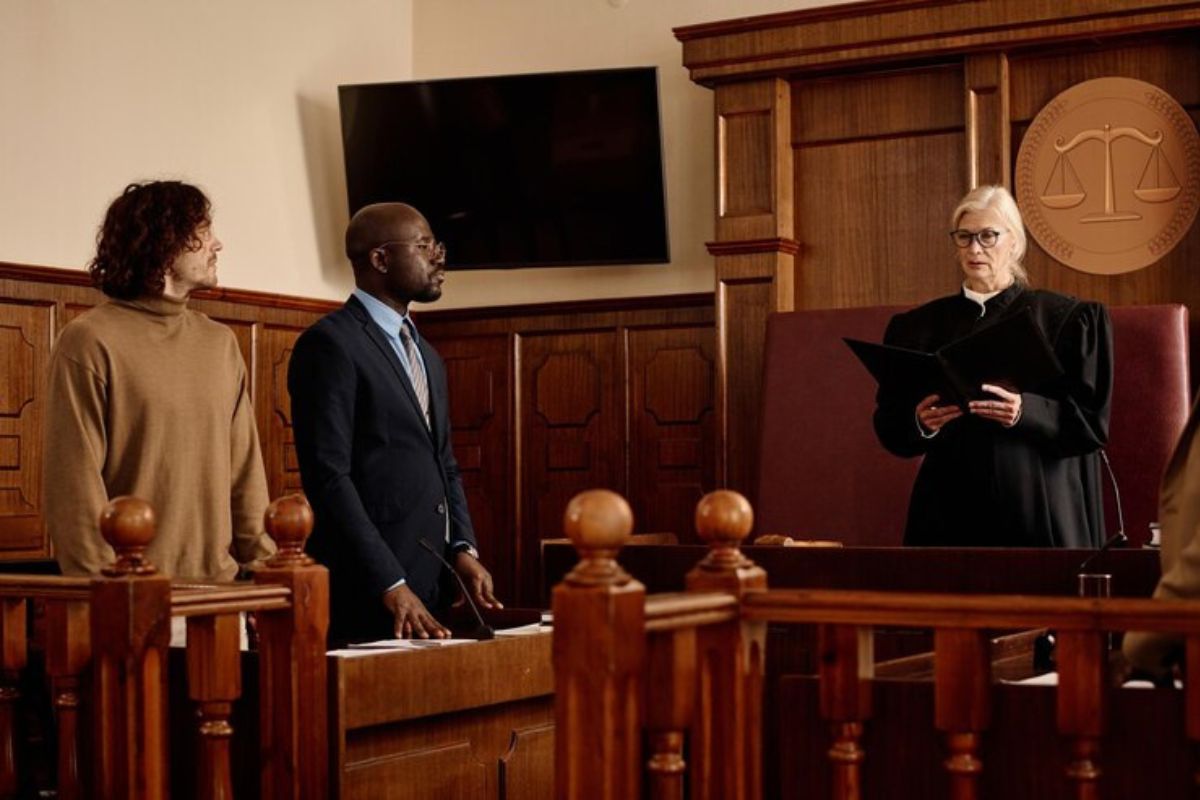What Is Court-Ordered Therapy? Everything You Need To Know
Court-ordered therapy is required by law through a judge’s ruling. It is often assigned during legal cases involving criminal activity, family disputes, or mental health concerns. The purpose is not to punish, but to guide individuals toward healthier behaviors and emotional well-being.
These therapy sessions are delivered by licensed professionals. Each plan is customized to meet the person’s specific needs. Common types of court-ordered therapy include anger management, addiction counseling, and parenting support.
Progress in therapy is tracked and reported to the court. Legal consequences may be faced if sessions are skipped or avoided. When fully committed to, court-ordered therapy can serve as a powerful tool for recovery and change.

What Is a Court Order and How It Connects to Therapy
A court order is a legal directive from a judge. It must be followed exactly as written. In many legal situations, these orders mandate therapy or treatment programs. This happens in criminal cases, custody disputes, or when repeated emotional issues are present.
Court-ordered therapy is a formal requirement, not a suggestion. It is used to encourage mental health improvement and personal responsibility. Legal consequences can occur when a court order is ignored or violated. Compliance reflects cooperation and readiness for change.
By assigning therapy, courts aim to correct behavior in a constructive and structured way. It allows individuals to get help without being placed in a correctional facility immediately. This often reduces strain on the legal system and lowers future court involvement.
What Is a Mental Health Evaluation in Court-Ordered Therapy?
A mental health evaluation is often the first step in court-ordered treatment. It is conducted by licensed professionals. Emotional, behavioral, and psychological health is assessed through interviews and standardized tests.
These evaluations help courts determine the most appropriate form of therapy. A person’s legal, medical, or psychological history is reviewed. The outcome of the evaluation guides the therapy plan that follows.
During the evaluation, concerns such as depression, anxiety, PTSD, or substance use may be uncovered. These insights are used to tailor a recovery path specific to the individual’s needs.
Why the Court Requires Mental Health Evaluations
In legal cases involving emotional instability or substance abuse, evaluations may be required. These evaluations help identify conditions that impact behavior. Judges use these insights to make informed legal decisions.
Evaluations ensure therapy is tailored and effective. They also help courts hold individuals accountable. The goal is rehabilitation, not punishment.
Without proper evaluation, individuals may be given therapy that does not address the root issue. That’s why assessments play a critical role in successful outcomes. When evaluations are thorough, they lead to better, more lasting results.
How Court-Ordered Therapy Helps Over Time
Court-ordered therapy is used to help people resolve serious mental and emotional issues. These issues may have led to legal trouble. With professional support, healthier thinking and behavioral patterns are developed.
Therapy sessions can teach coping strategies and improve communication. Over time, emotional regulation and relationships are often strengthened. When approached seriously, long-term life improvement can be achieved.
Therapy can also rebuild trust between individuals and their families, workplaces, or communities. The ability to manage conflict and stress is strengthened, which creates a more stable environment.

How Court-Ordered Therapy Works Step by Step
Court-ordered therapy follows a clear structure. It ensures treatment is both effective and legally compliant.
Step 1: A Court-Ordered Evaluation Is Completed
An evaluation is completed before therapy begins. Licensed professionals conduct interviews and assessments. Background information and medical history are reviewed.
The findings help determine the best treatment. A specific therapy plan is then created based on these results. The court reviews and approves this plan to ensure compliance with legal goals.
These evaluations not only diagnose but also highlight strengths the person may build on. The full picture of a person’s mental and emotional state is considered.
Step 2: The Appropriate Therapy Is Started
Therapy types vary depending on the situation. Common options include:
- Mental health counseling: Used to manage anxiety, trauma, or depression.
- Addiction treatment: Designed for people dealing with drug or alcohol dependence.
- Anger management: Teaches tools for emotional control and peaceful communication.
- Parenting programs: Used in custody or abuse-related cases to improve family dynamics.
Treatment is customized to the individual’s needs. The severity and nature of the legal issue are also considered. Some therapy may include educational components or group sessions for social learning.
Step 3: Compliance Is Monitored and Reported
Therapists are often required to send progress reports to the court. These reports track attendance and overall improvement.
If sessions are missed or progress is poor, legal action may be taken. Further penalties or extended treatment may result. Courts rely heavily on these updates to evaluate success.
Records may be requested to confirm medications are taken or drug tests are passed. Every action during therapy may be reviewed and documented.
Why This Process Matters
This structured approach helps courts address behavior while encouraging mental health growth. It balances public safety with individual recovery. For many people, it provides a new path forward.
Court-ordered therapy has helped reduce repeat offenses, promote healing, and improve life outcomes for thousands of individuals nationwide.
Reasons and Types of Court-Ordered Therapy
Court-ordered therapy is used when someone poses a risk to themselves or others. It is often required when a person cannot care for themselves due to mental illness or addiction. Judges may also use therapy as an alternative to jail time.
Treatment can take place in a variety of settings. These include inpatient hospitals, outpatient clinics, or community programs. All court-ordered programs are considered mandatory and legally enforced.
Who Pays for Court-Ordered Therapy?
Therapy costs are usually the responsibility of the person receiving care. Health insurance may cover some or all expenses. If payment is not possible, the court must be notified.
Financial aid may be provided, but it must be formally requested. If cost-related issues are ignored, the individual may still face legal consequences.
Failure to communicate financial hardship to the court may be seen as noncompliance. That could complicate the legal case or delay treatment.
Noncompliance Can Lead to Serious Legal Issues
Failing to follow a court-ordered treatment plan can result in fines, jail time, or hospitalization. People who violate their orders may be considered in contempt of court. This is treated as a serious offense.
Judges may extend the therapy timeline or add additional requirements. In some cases, protective custody or mandatory hospitalization may follow.
Court-Ordered Therapy in Custody Cases
Court-ordered therapy is often used in child custody or divorce cases. Psychologists are asked to evaluate what is best for the child. This includes interviews, home observations, and psychological testing.
Other sources, like school records or medical reports, may be reviewed. The information collected informs decisions on custody and visitation.
Confidentiality rules apply, but the court is allowed access. This helps ensure that therapy supports the child’s emotional well-being.
Therapists may be asked to testify or submit written findings. The child’s safety and best interests remain the top priority in these decisions.
Types of Court-Ordered Treatment
Every state has its own rules for mental health-related court orders. These rules outline how long therapy must last and what rights individuals have. Therapy may occur in:
- Hospitals or residential facilities
- Day programs or community treatment centers
- Sessions with private therapists
Some individuals may be required to take prescribed medications. In some cases, long-acting injectable antipsychotics are mandated. Treatment providers document progress and share updates with the court.
Legal oversight ensures that treatment goals are met and that all safety concerns are addressed. Therapy settings are chosen based on individual risk level and treatment needs.
Examples of Court-Ordered Therapy Programs
The following programs are commonly ordered by courts to help reduce repeat offenses:
| Program | Purpose and Use |
| Diversion Programs | For first-time offenders. Therapy or classes are required to avoid full conviction. |
| Drug Court | Used when drug abuse is involved. Charges may be reduced when treatment is completed. |
| Victim Impact Panel | Required for DUI/DWI offenders. Victims share stories to show the real impact of decisions. |
| Anger Management | For those charged with violence. Skills are taught in group or individual therapy. |
| Parenting Therapy | Ordered during custody cases. Focus is placed on recovery, structure, and safe parenting. |
| Reunification Therapy | For separated families. Therapy helps rebuild trust and communication after conflict. |
These programs provide education and emotional support. They are designed to help people rebuild their lives while protecting others.
Outcomes may include charge dismissal, reduced sentencing, or family reunification. Each program supports a different aspect of recovery.

Why Court-Ordered Therapy Is Essential
Court-ordered therapy plays a vital role in both personal and public well-being. It is used to uncover mental health issues that may cause harmful behavior.
Addressing Mental Illness and Addiction
Therapy is often needed when mental illness or addiction influences decision-making. When untreated, these conditions lead to legal problems. Therapy identifies the issue and creates a path toward recovery.
Supporting Rehabilitation Over Punishment
Court-ordered therapy helps people take responsibility while receiving support. It teaches problem-solving, emotional control, and healthier ways to cope. Recovery is possible when these tools are applied consistently.
Improving Community Safety
Proper treatment reduces the risk of repeated offenses. When therapy is completed, people are less likely to harm others or themselves. This creates safer families and communities.
A Fresh Start Can Be Given
Although court-ordered therapy is mandatory, many people experience long-term growth. When the process is taken seriously, it becomes a turning point. People learn new skills, rebuild trust, and find stability.
Lives have been redirected, families have been repaired, and communities have become stronger—all because court-ordered therapy was embraced.
Conclusion
Court-ordered therapy has been used to change lives and reduce harm within families and communities. It is not designed to punish but to treat and restore. By participating in mandated therapy, individuals are guided toward healthier choices and emotional balance. The legal system uses this method to promote accountability and healing. One of the primary goals of court-ordered therapy is to support individuals in making sustainable life changes while fulfilling legal responsibilities. When court orders are respected, better outcomes are achieved in both personal and legal situations. Through evaluations, structured programs, and licensed care, recovery is supported and relapse can be reduced. Individuals are empowered to rebuild trust and stability in their lives. Long-term transformation can be achieved when court-ordered therapy is taken seriously. Progress is monitored, goals are defined, and change is made possible—one session at a time.
Frequently Asked Questions (FAQs)
1. What is court-ordered therapy?
Court-ordered therapy is mandated by a judge and requires individuals to attend therapy as part of legal proceedings.
2. Who pays for court-ordered therapy?
The individual or their health insurance is responsible. Courts must be informed if financial help is needed.
3. What happens if I skip a session?
Missed sessions may be reported to the court. Legal consequences such as fines or jail may be enforced.
4. How long does court-ordered therapy last?
Duration depends on the case and court decision. It can range from weeks to several months of treatment.
5. Can court-ordered therapy help with custody cases?
Yes. It is often used to assess parenting skills or mental health in child custody and divorce disputes.

